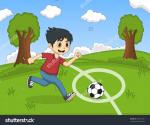
Kids today have a lot on their plates, and with good reason. Learning is more rigorous than it ever has been, thanks to the high stakes assessments higher academia uses as a likely predictor of success in their classrooms. Universities around the world are looking for students with a diversified background, and that includes getting excellent marks in all school subjects, including the difficult ones. Prospective students should also be able to work well with others and have a background in the arts. It seems like there's only so much time to do it all. What's more important? Academics, athletics or the arts?
Academics provide the foundation of learning. Mathematics, sciences, history and languages form the cornerstones up from which all learning spirals. Students begin their studies narrowly, focused on simple, concrete concepts and then learn more abstract concepts as their base of learning widens. In this way, a student may begin with the meaning of numbers, work up to the four functions in math and then eventually learn calculus. Academics help students learn about their world, taking what prior generations have learned and building on it.
Athletics teaches students two important precepts: how to be physically active for the rest of his or her life and how to work well with others. A long time ago, athletics were less important than they are today. Families labored together, and their bodies were always in motion. Modern living has changed that. Sitting at a desk all day and eating processed or fast food is extremely unhealthy, and children are developing diabetes at an alarming rate. Physical activity gets students up and moving, working their muscles and improving their cardiovascular systems. Athletics does something else, too. Participating in athletics teaches your child how to work with others, accept losses and develop good sportsmanlike conduct. Employers have consistently lamented that it is difficult to find the caliber of employees they need; many young people have not developed the collaborative skills necessary for success after formal schooling ends. Athletics changes that through teamwork.
If academics are for the mind and athletics are for the heart, then the arts are for the soul. Learning to play an instrument, create a dance or paint a picture is self-soothing. That's a welcome skill in our fast-paced 21st century, where so many people seem to need constant sensory stimulation. Students who study the arts -- music, art, dance and drama-- for an extensive period of time appear to perform better on standardized testing, like college entrance exams. The latest research won't admit that the arts increase IQ, but there is evidence that they enhance overall cognitive activity.
Savvy parents know that their children need a balance of all three areas. Academics, athletics and the arts create a whole picture of your child, making him or her well-rounded and more likely to succeed than peers who do not develop intellectual, physical and emotional strengths.